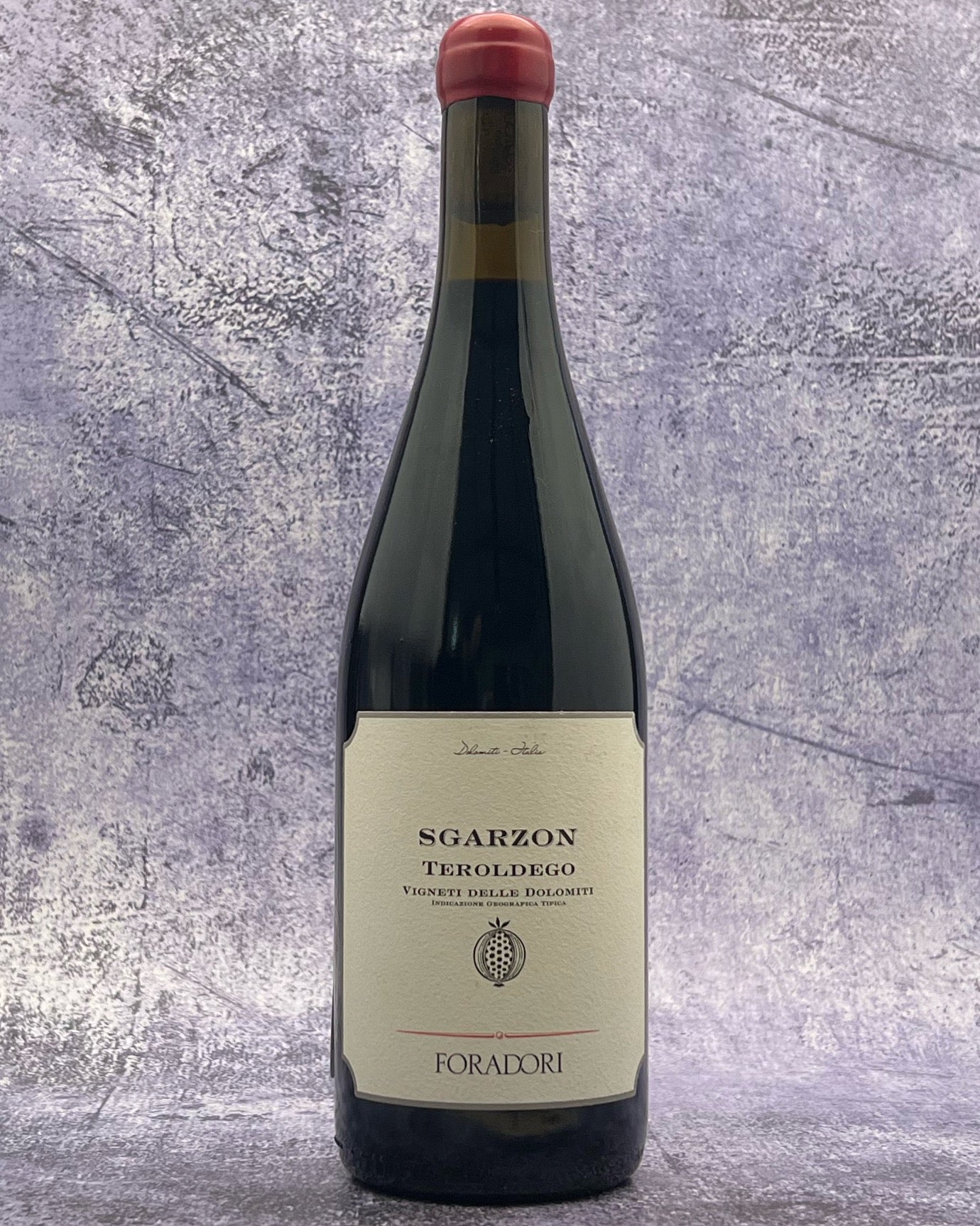From: Campo Rotaliano, Trentino, Alto Adige, Italy
Varietal: Teroldego
Taste & Critical Acclaim: There’s so much purity and freshness to the red fruit, with citrus peel, white pepper and attractive crushed stone minerality. It’s medium-bodied, bright and so expressive. Juicy, tense and very long. From organically and biodynamically grown grapes with Demeter certification. 96 points James Suckling
A drop-dead gorgeous display of dusty violet and lavender tones gives way to wild blueberries and shavings of pine as the 2022 Teroldego Sgarzon blossoms in the glass. This is texturally deep, with silken waves of ripe red and blue fruits flowing across a juicy acidity stream. Crunchy mineral tones add lovely depth and hints of blood orange as the 2022 tapers off with tremendous length. A staining of tart blackberry and gently grippy tannins resonate on. In 2022, the Sgarzon has it all: depth, complexity, energy, power and structure. I love it. 95 Points Vinous
This rich, lively red is fragrant with floral and herb notes, with a zesty cracked peppercorn edge to the flavors of steeped raspberry, green plum, peach skin and heather. Plush tannins are sculpted and well-meshed, while savory accents of forest floor, iron and fresh earth drive the racy finish. Drink now through 2032. 850 cases made, 110 cases imported. 92 points Wine Spectator
Pairing: For traditional pairings, consider dishes like Spezzatino di Manzo (Italian beef stew), where the wine’s acidity cuts through the richness of slow-cooked beef, or Canederli (bread dumplings), a northern Italian specialty served with a mushroom or butter sauce. The wine’s lively fruit and spice notes also make it an excellent match for Polenta con Salsiccia (polenta with sausage), as its freshness balances the savory depth of the dish.
This shines with grilled lamb chops, pork loin, or beef roast seasoned with rosemary and garlic for a more contemporary pairing, allowing the tannins and bright fruit to complement the meat's richness. Its zesty acidity also makes it a great partner for roast duck with a berry glaze or a Moroccan lamb tagine with dried fruits and warm spices, which mirror the wine’s exotic spice and fruit character.
Lamb Shank Tagine With Dates
By David Tanis
About. Azienda Agricola Foradori, located in the northern Italian region of Alto Adige, is one of the country's most respected and renowned wineries, with a deep-rooted history in producing indigenous grape varieties, particularly Teroldego. The estate was founded in 1901, but its modern legacy began when Elisabetta Foradori took over in 1984 following her father's passing. At 19 years old, she embarked on a mission to revitalize the family estate, modernize its practices, and elevate its wines, bringing them to international recognition.
Elisabetta is celebrated for her pioneering work with the Teroldego grape, an Indigenous variety that was largely overlooked at the time. She recognized its potential and devoted herself to refining its expression through organic and biodynamic farming, eventually becoming a symbol of this renaissance. Over the years, she has become a prominent voice for biodynamics, leading by example through her commitment to farming with respect for the land, biodiversity, and long-term sustainability.
A significant milestone came in the early 2000s when the Foradori estate officially converted to biodynamic farming. This transition was more than a change in agricultural techniques; it was a philosophical shift toward creating wines deeply connected to their terroir, which expresses the land's natural cycles. Elisabetta's focus on biodiversity, soil health, and minimal intervention in the vineyard and the cellar reflects her dedication to crafting wines with integrity and a sense of place.
The Foradori estate is nestled in the Campo Rotaliano, a small but highly distinctive Trentino area within the broader region of Alto Adige. This area lies at the foothills of the majestic Dolomite Mountains, which provide a stunning backdrop and significantly influence the local climate and terroir. The estate benefits from a alpine-continental environment, where the cool temperatures and the stark diurnal shifts play a crucial role in shaping the character of the wines.
Wine Notes: Sgarzon, meaning “shoot” in the local dialect of Campo Rotaliano, refers to the dynamic growth of the vines in this particular vineyard. Located in a cooler region, the Sgarzon vineyard imparts a distinct freshness to the Teroldego grapes grown there. This cooler microclimate alters the typical character of Teroldego, adding an unexpected vibrancy and liveliness to the wine. The grapes undergo an eight-month fermentation period in Spanish amphorae (tinajas from Villarrobledo), where extended skin contact enhances the wine's complexity and highlights the unique expression of the vineyard.

